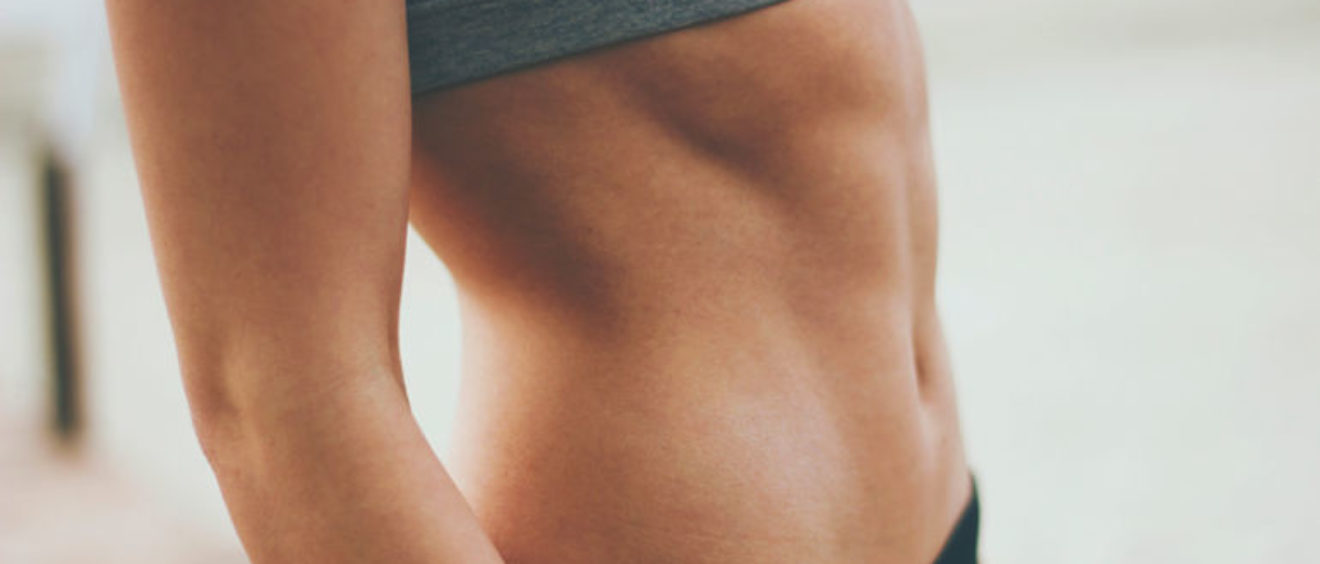
6-pack δεν σημαίνει οτι υποστηρίζετε την σπονδυλική στήλη, αυξάνει τον κίνδυνο για διάσταση κοιλιακών και…….συνεχίστε αν σας ενδιαφερει
repost from mindbodygreen.
I’m a Pilates instructor, personal trainer, and nutrition coach, and I never want a six-pack. You might find this surprising — after all, my job is to help people feel fit and strong, so why wouldn’t I want so-called perfect abs?
Despite social media adding to the pressure to look a certain way, especially if you are a Pilates and fitness professional, the truth is that having a six-pack can be unhealthy. In fact, in the pursuit of a flawless abdomen, it’s very easy for women to become overtrained, underweight, and antisocial.
Here’s why I’d rather have a strong core instead of washboard abs:
1. A six-pack is the least important abdominal muscle for spinal support.
When you do a crunch or a sit-up, the muscles that make up your six-pack (the rectus abdominis) contract to flex the spine. This same brace-like position is helpful during coughing, bowel movements, high-impact sports, and childbirth, as it helps to hold internal organs in place.
However, peek under the layer of superficial abdominals and you’ll find a treasure chest of deep ab muscles known as the core. These are:
- Transversus abdominis
- Internal oblique
- External obliques
- Diaphragm
- Pelvic floor
The core muscles strengthen, cushion, and stabilize the spine. They improve mobility, breathing, digestion, and postural alignment.
But unfortunately a strong core doesn’t seem as sexy as a six-pack, which is why so many gym-goers and trainers focus on high repetitions of crunch-like movements in an effort to get super-defined abs.
Training for a six-pack at the expense of overall core strengthening leads to quite serious muscular imbalances throughout the body. I’ve seen these imbalances show up as back and neck pain, hunch-back posture, or pelvic misalignment.
2. A six-pack can increase the likelihood of diastasis.
When I did my pre- and postnatal Pilates training I was surprised to hear that women with six-packs are more likely to develop a condition known as diastasis — separation of the outer abdominal muscles.
Diastasis occurs when the narrow band of connective tissue that runs between the two halves of the six-pack muscle becomes weakened and stretched. This is a fairly common condition of pregnancy, due to the pressure of the fetus against the intra-abdominal wall, and is often mild and easy to rectify … unless you have a six-pack.
The intense abdominal contractions required to create a six-pack cause some separation of the recti muscle over time, giving an almost literal meaning to the term “ripped abs.” You don’t need to be pregnant, or even a woman, to develop diastasis. An overtrained six-pack combined with a weak core can increase risk for this condition that can cause chronic low back pain, lumbar instability, digestive issues, and hernias.
3. You have to maintain a dangerously low level of body fat.
I have really strong abdominals, but I’ve never seen my six-pack “pop.” Why? Because I have a healthy level of body fat and that’s not low enough.
In my experience, a six-pack usually pops at about 10 to 14 percent body fat for women, and 6 to 12 percent for men. This range is hard to reach and sustain for most people, and it can also be downright unhealthy. I work with a lot of women in their 20s and 30s, including brides to be, and I tell them that dropping below 17 percent body fat may stop menstruation and increase the risk of infertility.
4. You have to prioritize your physique over almost anything else.
As an instructor, I’ve had many students who are over concerned with their appearance. In my experience the constant obsession over physique is cause for concern, and maintaining the extreme low levels of body fat required to see a six-pack can lead to eating disorders, anxiety, and depression.
The trade-off for having visible, washboard abs includes saying goodbye to decadent desserts and after-work drinks with friends, and hello to calorie counting and fasting.
So I have to ask, what’s the point? If my abs are strong enough to support my back, rock out a plank, and make me feel confident in a bikini, why would I risk my health for a bit more definition? In my opinion it’s simply not worth it.
